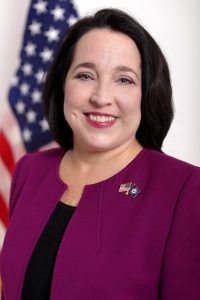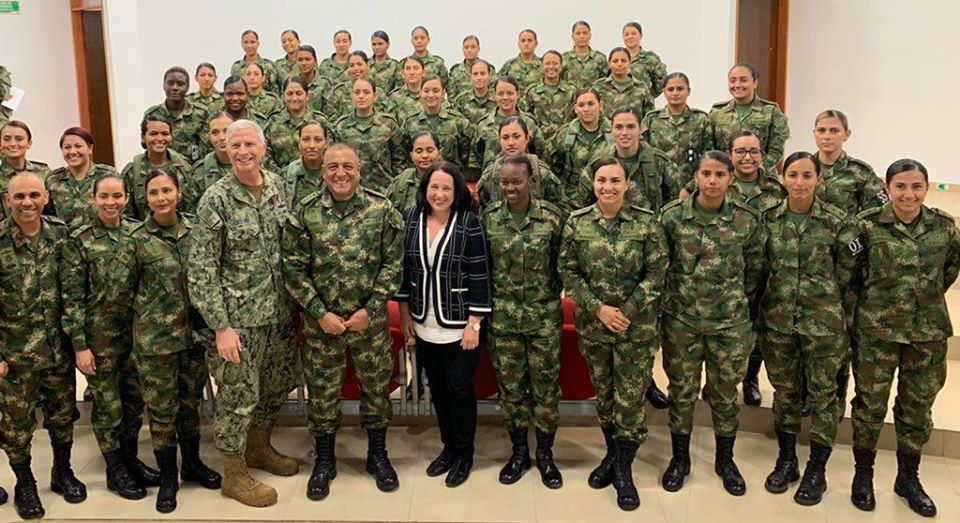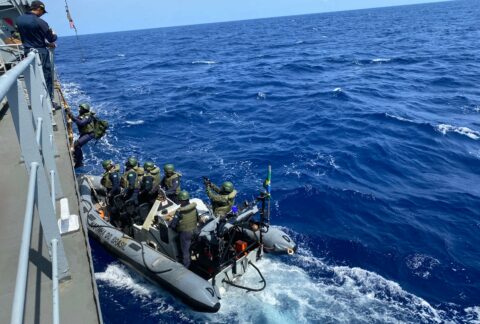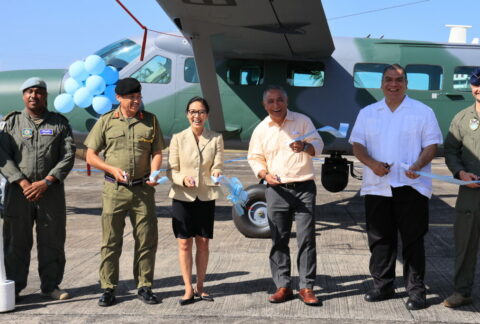Ambassador Jean Manes, U.S. Southern Command (SOUTHCOM) civilian deputy to the commander and foreign policy adviser, led a discussion on “Women, Peace, and Security in the Hemisphere” during Florida International University’s (FIU) fifth annual Hemispheric Security Conference (HSC) on May 19. The discussion was moderated by Dr. Cristina Rodriguez-Acosta, assistant director for Institutional Relations at FIU’s Jack D. Gordon Institute for Public Policy.
HSC is an annual conference where experts from academia, governmental, and nongovernmental organizations and the private sector examine the most pressing security challenges facing the Western Hemisphere. Past conferences included discussions on traditional and non-traditional threats, ranging from transnational organized crime, threat finance and terrorism, cybersecurity, climate change, and geopolitical rivalries. Due to the COVID-19 pandemic, this year’s conference, from May 18-22, was held online and consisted of eight panels, with 1,600 people from 30 countries tuning in live in English, Spanish, and Portuguese.

No lasting peace without women
“When we talk about women, peace and security, I’m often puzzled a little bit by it because, in fact, there’s no lasting peace without women and there’s no lasting security without women,” Ambassador Manes said during her opening remarks. “We are trained from an early age to be negotiators. We know how to listen, to develop those skills that you need to be able to include other perspectives, to come to mediation, to negotiate lasting peace and change.”
In her opinion, women have to be involved in every part of the economic, political and military process. For Ambassador Manes, if a minister of defense, chief of defense, or police chief strives to be successful, they have to always include women in their discussion and decision-making. When she became the highest-ranking civilian at SOUTHCOM, in October 2019, U.S. Navy Admiral Craig S. Faller, the organization’s commander, told her he wanted to raise the profile of service women. The Women, Peace, and Security (WPS) program became part of her portfolio and a priority ever since.
Ambassador Manes explained that this issue plays out differently in each country. For example, on a recent trip to Colombia, “we brought together 50 women from the Colombian Army. Some went from being skeptics of ‘why we’re even doing this’ to the chief of the Colombian Army saying, ‘I didn’t even know we had this much talent.’ I say that because many of us who are listening work on structural reform, and it is critical. Such as, structural reform about how you recruit, how you promote, how decisions are made, and who’s involved in the process.”
Breaking barriers
Ambassador Manes stated that on every international trip, she and her team showcase women who are breaking barriers. “We highlight them because it sends a message that we prioritize women, and women in peace and security. Those 50 Colombian women would really never have had contact with their senior Army leadership, and now they’re visible. Their stories are heard. They’re known.”
For Ambassador Manes, it’s important to address cultural and structural issues. According to her, sometimes this entails simple changes, such as making sure you have separate sleeping facilities and bathrooms for women, but these changes are also more sophisticated. It is important to show other high-ranking personnel in the region what others are doing — and how this is working. “Look at what the chief of defense in Jamaica is doing. He’s knocking it out of the park,” she said. “That chief of defense in Jamaica, Rocky Meade, is really doing that. He’s doing the structural and the visible. And, in doing that, he is making his society more secure.”
SOUTHCOM’s deputy civilian commander said that in terms of countries that have significant issues with corruption, the public views women as more trustworthy, that women are not going to be corrupted as easily as men, citing the following example. “When I was in El Salvador, we were meeting with a specialized unit that was working on money laundering… related to some of the most serious criminals of one of the top gangs. I walk into that specialized unit and there were seven women! Seven women all about five-foot-one, five-foot-two, taking on the most powerful members of one of the most violent gangs in the world. And when you think about that, why do you do that? They care about their country; they care about their families.”
Ambassador Manes concluded saying it is important to have a combination of investing in an institution and the long-term changes, “but also lifting up those women who are making strides so that you can showcase the talent and make visible what was once invisible.”









